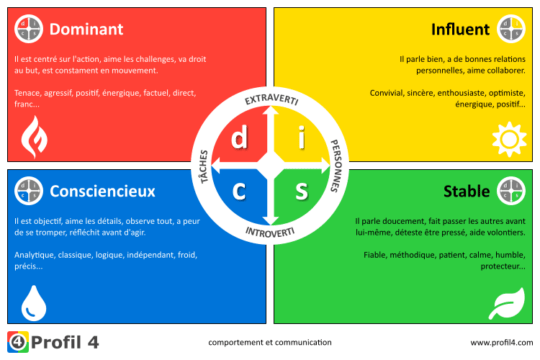Recruitment challenges
The impact of bad hiring on the company
A company’s long-term success depends directly on its hiring decisions, since its lifeblood is its people. A succession of bad hires can therefore have significant repercussions on an organization’s overall performance.
A bad hire can result in considerable costs: the expense of recruiting, training and paying the new employee can prove to be an unprofitable investment if the candidate fails to adapt to the company’s culture or achieve the objectives set. Tensions can arise internally, damaging the working atmosphere and team spirit. This can lead to loss of productivity and reduced quality of work, with negative repercussions on the company’s reputation.
Depending on the source, it is estimated that the cost of a failed recruitment is equivalent to 15 to 25% of the employee’s gross annual salary. This cost is made up of easily quantifiable direct costs (salary and benefits, employer contributions, cost of advertising, cost of replacing the employee, etc.) and indirect costs (cost of integrating the employee, impact on team dynamics and productivity, company image, etc.). A failed recruitment occurs when an employee leaves the company less than 12 months after being hired.
Recruitment criteria
With this in mind, finding, recruiting and retaining the right candidate is a major challenge. Traditional recruitment criteria play a central role in this process. Professional experience, education and technical skills remain essential criteria for assessing a candidate’s suitability. However, more and more companies are recognizing the importance of soft skills, such as interpersonal skills, problem-solving and adaptability. Effective recruitment is not just about identifying the technical skills required, but also about understanding the candidate’s values, personality and motivation.
These qualities are often assessed through interviews, role-plays and, increasingly, personality tests.
What is a job interview personality test?
Personality test: definition
In the context of a job interview, a personality test is an evaluation method designed to analyze a candidate’s traits, behaviors and psychological characteristics. It is designed to provide in-depth information on the applicant’s personality in order to assess their compatibility with the company’s culture, their ability to integrate into the team and their capacity to adapt to the demands of the position.
This type of test is generally based on standardized, scientifically validated questionnaires, designed to measure various aspects of personality such as dominant traits, interpersonal skills, stress management, decision-making, and other psychological dimensions relevant to the professional context. These tests are often based on a personality inventory, a series of questions designed to reliably and consistently measure an individual’s personality traits.
These assessments usually involve a detailed personality questionnaire, designed to explore different aspects of the candidate’s character and behavioral preferences. Candidates answer these questions subjectively, expressing their preferences, reactions and attitudes.
The results of a personality test provide recruiters with in-depth insights into how an individual reacts to certain situations, interacts with others, and handles professional challenges. This information then complements traditional assessments based on experience and technical skills, providing a more complete picture of the candidate.
It is essential to stress that personality tests must be administered in an ethical manner, respecting the confidentiality of personal data and ensuring that the results are used in a relevant and objective way. These tests should not be the only decision-making criterion, but rather considered as an additional tool in the recruitment process, offering a more global perspective on the compatibility between the candidate and the company.
Different types of personality tests commonly used
Different personality tests, such as the MBTI or DISC, classify individuals into different personality types, providing useful insights into how they might fit into a specific work environment.
MBTI (Myers Briggs Type Indicator)
The MBTI (Myers-Briggs Type Indicator) test is particularly popular, offering insights into a candidate’s personality type, based on the psychological theories of Carl Jung. This American test is the most widely used, with almost 20,000 tests performed every day. It identifies the candidate’s psychological dominance among 16 profile types, according to four aspects: extravert/introvert (energy orientation), sensation/intuition (information gathering), thought/feeling (decision-making), judgment/perception (action mode).
For the recruiter, the results of the test indicate whether the candidate is suited to the proposed position and to which function he or she could progress.
DISC
The DISC tool, an acronym for Dominant, Influential, Stable and Conscientious/Compliant, represented by colors (red, yellow, green and blue), is an assessment tool that identifies a candidate’s behavioral and communication style. Based on his dominant colors, the recruiter will be able to assess whether he’ll fit in with the team and how he can better integrate. This test helps you understand your communication style, so you can better adapt the way you communicate with others to suit your needs.

AssessFirst
AssessFirst
offers several solutions, including a candidate assessment based on three criteria: personality, motivation and cognitive skills.
In this way, the recruiter obtains an overview of the candidate’s ability to succeed in his or her role, to fit in with the team and a score of suitability in relation to expectations.
Among many other tests, the Big Five model, also known as OCEAN, is recognized for its approach based on five major character traits. This model evaluates dimensions such as openness, conscientiousness, extraversion, agreeableness and emotional stability. Other examples include CentralTEst, TalentMap, PerformanSe, PAPI (used by 10% of recruiters in France, according to Pôle Emploi), SOSIE, Predictive Index and Boussole Pro.
The advantages of personality tests in job interviews

Objective assessment of personality traits
Personality tests, as assessment tools in the job interview process, offer a series of advantages that contribute to more informed and objective decision-making in recruitment. Firstly, these tests offer an objective assessment of candidates’ personality traits, bringing a scientific dimension to the evaluation of interpersonal and behavioral skills. Personality tests can reveal important aspects of an individual’s professional personality, including their approach to teamwork, stress management and leadership style. By measuring characteristics such as extraversion, emotional stability and stress tolerance, recruiters can obtain reliable and comparable data between candidates, contributing to a more balanced assessment.
Predicting work performance
Personality tests have proven their ability to predict work performance. By analyzing test results, employers can anticipate how an individual will react to specific work situations, facilitating a better match between a candidate’s personal skills and job requirements. This reduces the risk of incompatibility between the new employee and the role he or she will occupy, promoting faster, more successful integration and therefore greater productivity.
Complementarity with other recruitment methods
Another major advantage is that personality tests complement other recruitment methods. While experience and technical skills remain crucial criteria, personality tests offer a unique insight into how an individual approaches challenges, communicates and interacts within a team. Integrating these results with traditional interviews and other assessments enriches the overall picture of the candidate. When two candidates have the same qualifications and the same professional experience, the personality test enables recruiters to make an informed and objective choice.
Reduced risk of recruitment errors
The use of personality tests contributes significantly to reducing the risk of recruitment errors. Recruitment errors can generate considerable financial and operational costs for a company. Personality tests, by providing an in-depth assessment of behavioral traits, reduce the risk of selecting candidates whose personality does not align with the company culture or job requirements. This helps minimize the costs associated with poor integration, training and staff replacement.
The limits of personality tests in job interviews
It’s crucial to note that, while these tests provide valuable information, they only capture part of what makes up an individual’s complete personality. Understanding personality in its entirety requires a more holistic approach, combining test results with observations and face-to-face interactions.
Risk of bias and subjectivity
Despite the undeniable advantages of personality tests, there are still some inherent limitations. The main limitations include bias and subjectivity, which can influence the results. Indeed, personality tests are often based on models developed in specific cultural contexts, which can lead to inequalities and misinterpretations among candidates from different backgrounds. In addition, the subjectivity inherent in participants’ responses can be influenced by factors such as current mood, perceived expectations and the desire to provide socially acceptable answers. For example, a candidate for a sales position might fudge a few answers to appear more extroverted, in order to be sure of “fitting in”.
The limits of predictable performance
Another significant limitation lies in the predictive abilities of personality tests with regard to work performance. While these tests can offer insights into how an individual may react in specific situations, they do not necessarily guarantee success in a particular position. Technical skills, professional experience and other factors can play an equally crucial role in an individual’s professional success. Personality tests cannot provide a complete picture of the skills and knowledge needed to excel in a specific role.
Importance of interpreting results
Interpreting personality test results is another major challenge. The complex nuances of human personality cannot always be captured exhaustively by standardized questionnaires. Evaluators may find it difficult to fully understand the meaning of certain responses and to correctly interpret the variety of personality traits measured. Some results go on for pages and pages, with no summary. The results must therefore be interpreted with caution, recognizing that personality is a dynamic and complex concept. Test results are only an additional part of a candidate’s profile, and should be used in conjunction with job interviews, reference checks, case studies or simulations.
A decision to hire, or not, cannot be justified by the results of a personality test alone.
How to use personality tests in job interviews?
Integrating personality tests into the recruitment process
If you want to include a personality test as a step in the recruitment process, be careful not to make your overall process too cumbersome. Take into account the total number of interviews the candidate will go through and any other tests (role-playing, case studies…) before deciding to include a personality test. The recruitment market remains tight, and certain professions are in short supply. For some positions, it makes little sense to add an extra step to the recruitment process. The personality test should not be seen as a barrier that could demotivate candidates by lengthening the deadline.
If it is used, the test must have a real purpose, which must be explained to the candidate beforehand: the desire to find the candidate who will fit in best with the team, to check the candidate’s compatibility with the company’s values…. Personality assessment needs to be carefully integrated into the recruitment process, ensuring that it complements rather than replaces traditional skills assessment methods.
Training recruiters in the use of personality tests
To counter subjectivity bias and the limitations raised, training recruiters in the use and interpretation of the results is essential. This is not a neutral point, since companies have to invest time and resources in administering, analyzing and interpreting the results, which can extend the overall recruitment timeframe.
Companies wishing to do so can also be accompanied by recruiters, such as the
recruitment experts from Boost’RH
recruitment experts, experienced in test administration and results handling (interpretation, feedback to the company and the candidate).
Ethics and confidentiality in the use of tests
Recruiters who use personality tests must comply with strict rules of ethics and data confidentiality. First and foremost, it is essential that candidates are transparently informed about the nature and purpose of the tests, and how the results will be used.
Data collection and storage must comply with current laws and regulations to guarantee the confidentiality of personal information. Companies must ensure that only authorized persons have access to test results, and that this information is not used in a discriminatory manner. It is crucial to ensure that data is secure against potential breaches, and that candidates can access their own results if necessary.
Conclusion
In conclusion, there are significant advantages to using personality tests in job interviews, but there are also limits to be taken into account. On the positive side, these tests offer a structured method for assessing candidates’ behavioral traits, facilitating objective, informed decision-making. They enable us to target specific skills and anticipate performance in a professional context. However, it’s crucial to recognize their limitations, including cultural sensitivity, the potential for bias, and the risk of over-generalization.
For effective use of personality tests, companies are advised to ensure full transparency with candidates, clearly explaining the purpose of the assessments and how the results will be used. Aligning tests with the specific organizational culture is essential to maximize their relevance. In addition, training evaluators in the correct interpretation of results is crucial to avoid erroneous conclusions.
Finally, it’s imperative to stress that personality tests should not be the sole basis for decision-making. A balanced overall assessment, combining interviews, references and assessment of technical skills, remains essential to ensure the accuracy of the recruitment process. By integrating personality tests, companies can optimize their ability to select candidates who fit in not only in terms of behavior, but also in terms of skills and corporate culture.


